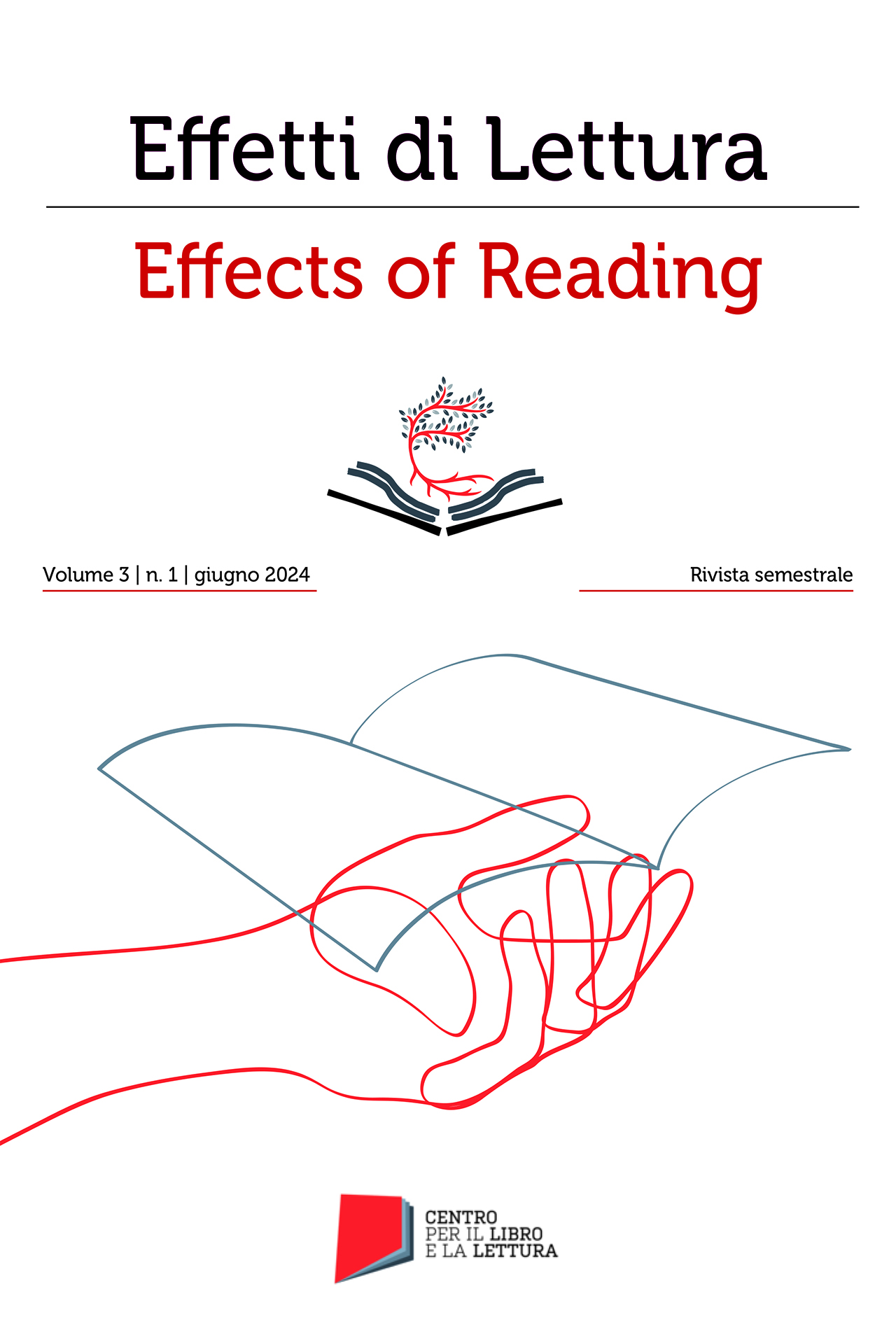Promoting Reading or Educating for Reading? Educational Choices of Schools and Their Consequences
DOI:
https://doi.org/10.7347/EdL-01-2024-02Keywords:
education, promotion, reading, methodologies, practises, Early childhood education servicesAbstract
Recent studies have extensively validated the importance of reading aloud practices, highlighting their cognitive, emotional, relational, linguistic, and lexical benefits across various age groups (Batini & Bartolucci, 2019; Batini, 2021; Batini et al., 2020; 2021a, 2021b; Candela et al., 2022). Early exposure to reading and maintaining a lifelong relationship with books are predictive factors for the development of numerous skills, academic success, better psycho-physical health, and greater professional and financial success (Aram & Shapira, 2012; Brunello et al., 2017; Herbers et al., 2012; Lonigan & Shanahan, 2009; McInnes et al., 2003). Schools should serve as environments that not only help children and adolescents acquire strategic competencies, such as reading and understanding texts of different types, but also develop a reading habit, fostering success in school and life paths and promoting the development of individuals and communities. However, there is often a lack of clear awareness regarding the distinction between promoting reading and educating towards reading: the latter involves an intentional use of reading as a tool of knowing the world, with a peculiar focus on readers, while reading promotion aims to create communities of readers focusing on the book. In order to offer an overview on the practises of reading education and reading promotion in a sample of Italian schools in Italy and Italian schools abroad, it was conducted an exploratory and comparative investigation in accordance with CEPELL (Centre for Book and Reading of the Ministry of National Heritage and Culture) and MAECI (Ministry of Foreign Affairs and International Cooperation), reveals that promotional actions are implemented more frequently than educational ones, showing a lack of established practices. Consequently, the results highlight the importance of targeted and deci-sive interventions on certain aspects related to reading education actions that enable fostering autonomy and intrinsic pleasure in reading (Batini, 2022a; Cremin et al., 2012; Katsuta & Sawada, 2021), in addition to developing essential competencies for individual growth from an early age.
Downloads
Downloads
Published
How to Cite
Issue
Section
License
Copyright (c) 2024 Effetti di lettura / Effects of reading

This work is licensed under a Creative Commons Attribution-NonCommercial 4.0 International License.








